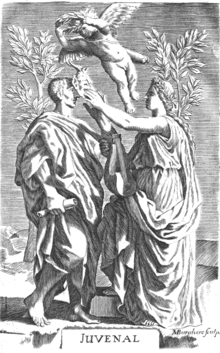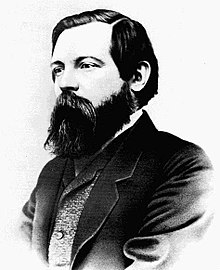General strike
Appearance



A general strike (or mass strike) is a strike action in which a substantial proportion of the total labor force in a city, region, or country participates.
Quotes
[edit]- The socialization or nationalization of production and distribution and the extinction of what is called Capitalism—by whatever name the ideal, and the process for its attainment, is called—would starve the resources, and, in time, drain away the life-blood of the great productive industries which depend for their efficiency on the free play of initiative and enterprise. And Labour is becoming more and more a class organization, an expression and embodiment of what is called “class-consciousness.” That again was significantly illustrated in the general strike, which was directed by organized Labour, and which was countenanced—it is true, in a somewhat shamefaced fashion—by the Parliamentary Labour Party leaders.
- H. H. Asquith, Speech in Greenock (15 October 1926), quoted in Speeches by The Earl of Oxford and Asquith, K.G. (1927), p. 309
- It is a great tribute to the good qualities of the strikers, who are our own people, that they showed that sense of discipline and restraint in obedience to their instructions. Many of them obeyed their orders from their sense of loyalty, orders of which they disapproved themselves, but if that strike had been successful it would have meant industrial ruin, not only to the miners, but to the whole country.
- Stanley Baldwin, Speech in Chippenham (12 June 1926) on the General Strike, quoted in Our Inheritance (London: Hodder and Stoughton, 1938), p. 167.
- It may have been a magnificent demonstration of the solidarity of labour, but it was at the same time a most pathetic evidence of the failure of all of us to live and work together for the good of all. I recognize the courage that it took on the part of the leaders who had taken a false step to recede from that position unconditionally...It took a great deal more courage than it takes their critics now, who are blaming them for not going straight on, whatever happened. But if that strike showed solidarity, sympathy with the miners—whatever you like—it showed something else far greater. It proved the stability of the whole fabric of our own country, and to the amazement of the world not a shot was fired. We were saved by common sense and the good temper of our own people.
- Stanley Baldwin, Speech in Chippenham (12 June 1926) on the General Strike, quoted in Our Inheritance (London: Hodder and Stoughton, 1938), pp. 167-168.
- The General Strike has taught the working classes more in four days than years of talking could have done.
- Arthur Balfour, Speech (7 May 1926), reported in The Observer (14 November 1926), quoted in Robert Andrews, The New Penguin Dictionary of Modern Quotations (2003)
- It is Northern Ireland that provides the classic contemporary demonstration of Clausewitzian principles in action. In 1974 the Ulster Protestants rejected powersharing under the 1973 Sunningdale agreement to the point of launching a general strike which the British army warned the British government it could not handle. The government thereupon abandoned the project. But in 1998 the majority of Unionist political parties and at least half the Unionist electorate have come to accept power-sharing under the deal brokered by Mo Mowlam. Wherein lies the essential difference between 1973–74 and 1998? It lies in the profound yearning on the island of Ireland and on the British mainland (including Whitehall and Westminster) for "peace" after the intervening 25 years of unrelenting "war" on the part of the IRA, years of violence of the most extreme kind intended (to quote Clausewitz) "to compel our opponent to fulfil our will". Thus all the talk of compromise and reconciliation in Northern Ireland is just so much small-l liberal blather disguising the Clausewitzian reality that by their "continuation of politics by other means" the IRA have indeed compelled their opponents to fulfil their will.
- Correlli Barnett, 'Home front, front line', The Spectator (4 July 1998)
- In the Bakuninst program a general strike is the lever employed by which the social revolution is started. One fine morning all the workers in all the industries of a country, or even of the whole world, stop work, thus forcing the propertied classes either humbly to submit within four weeks at the most, or to attack the workers, who would then have the right to defend themselves and use this opportunity to pull down the entire old society.
- Friedrich Engels, The Bakuninsts at Work (1873)
- Great importance was also attached to the general strike at the Geneva Congress of the Alliance held September 1, 1873, although it was universally admitted that this required a well-formed organization of the working class and plentiful funds. And there's the rub. ... The governments, especially if encouraged by political abstention, will never allow the organization or the funds of the workers to reach such a level.
- Friedrich Engels, The Bakuninsts at Work (1873)
- The first thing that happened when the European powers went to war was the collapse of the Socialist International. No European socialist party had called the working class out in a general strike against the war and the SPD (by far Europe’s most powerful socialist party) had in early August 1914 unanimously voted its government war credits; the French followed suit. Socialist workers were aligned by their parties behind the war effort of each European government and socialist internationalism revealed itself to be a myth. But the situation in Italy proved to be radically different.
- Giuseppe Finaldi, Mussolini and Italian Fascism, New York and London, Routledge, 2014, pp. 24-25
- Here’s to the Greeks. They know what to do when corporations pillage and loot their country. They know what to do when Goldman Sachs and international bankers collude with their power elite to falsify economic data and then make billions betting that the Greek economy will collapse. They know what to do when they are told their pensions, benefits and jobs have to be cut to pay corporate banks, which screwed them in the first place. Call a general strike. Riot. Shut down the city centers. Toss the bastards out. Do not be afraid of the language of class warfare—the rich versus the poor, the oligarchs versus the citizens, the capitalists versus the proletariat. The Greeks, unlike most of us, get it.
- Chris Hedges, "The Greeks Get It," truthdig.com, May 21, 2010
- The poor were wise, who, by the rich oppressed,
- Withdrew, and sought a secret place of rest.
- The “Secret place of rest” is Mons Sacer, where the plebeians hid after seceding from the Roman Empire in 495 BC
- Leftists have sometimes romanticised the wildcat as the authentic expression of the workers’ will, an act that developed spontaneously out of the workers’ resistance to the boss. Some see it as the harbinger of the general strike that will overthrow capitalism and bring the workers to power.
- Dan La Botz, Wildcat strikes across the US as pandemic spreads, 1 April 2020, Red Flag
- "It was military might, not pacifism, that defeated Hitler". Not exactly. Examples abound, both large and small, in Denmark, Holland, Norway, France, and elsewhere, in which nonviolent resistance defied the Nazi onslaught. In those places, Gene Sharp writes in The Politics of Nonviolent Action, “patriots resisted their Nazi overlords and internal puppets by such weapons as underground newspapers, labor slowdowns, general strikes, refusal of collaboration, special boycotts of German troops and quislings, and non-cooperation with fascist controls and efforts to restructure their societies’ institutions.” The defiance tended to be hastily organized and was not widespread. If the opposite were true—if Hitler had been resisted in the late 1920s and the early 1930s, not the early 1940s, and in more places—the war’s death toll might have been much lower.
- Colman McCarthy, "Fighting Fire with Water", The Progressive, February 2011
- No social co-operation under the division of labour is possible when some people or unions of people are granted the right to prevent by violence and the threat of violence other people from working. When enforced by violence, a strike in vital branches of production or a general strike are tantamount to a revolutionary destruction of society.
- Ludwig von Mises, 1947 epilogue to Socialism
- He who advises a sick man, whose manner of life is prejudicial to health, is clearly bound first of all to change his patient’s manner of life, and if the patient is willing to obey him, he may go on to give him other advice. But if he is not willing, I shall consider one who declines to advise such a patient to be a man and a physician, and one who gives in to him to be unmanly and unprofessional. In the same way with regard to a State, whether it be under a single ruler or more than one, if, while the government is being carried on methodically and in a right course, it asks advice about any details of policy, it is the part of a wise man to advise such people. But when men are travelling altogether outside the path of right government and flatly refuse to move in the right path, and start by giving notice to their adviser that he must leave the government alone and make no change in it under penalty of death—if such men should order their counselors to pander to their wishes and desires and to advise them in what way their object may most readily and easily be once for all accomplished, I should consider as unmanly one who accepts the duty of giving such forms of advice, and one who refuses it to be a true man.
- Plato, Seventh Letter
- Similar though Marx and Thoreau may be in their accounts of the consequences of living in a society defined by money, their suggestions for how to respond to it are poles apart. Forget the Party. Forget the revolution. Forget the general strike. Forget the proletariat as an abstract class of human interest. Thoreau's revolution begins not with discovering comrades to be yoked together in solidarity but with the embrace of solitude.
- Curtis White, “The spirit of disobedience: An invitation to resistance,” Harper’s Magazine, April 2006, pp. 37-38
- A worker-coop based economy—where workers democratically run enterprises, deciding what, how and where to produce, and what to do with any profits—could, and likely would, put social needs and goals (like proper preparation for pandemics) ahead of profits. Workers are the majority in all capitalist societies; their interests are those of the majority. Employers are always a small minority; theirs are the "special interests" of that minority. Capitalism gives that minority the position, profits and power to determine how the society as a whole lives or dies. That's why all employees now wonder and worry about how long our jobs, incomes, homes and bank accounts will last—if we still have them. A minority (employers) decides all those questions and excludes the majority (employees) from making those decisions, even though that majority must live with their results. Of course, the top priority now is to put public health and safety first. To that end, employees across the country are now thinking about refusing to obey orders to work in unsafe job conditions. U.S. capitalism has thus placed a general strike on today's social agenda. A close second priority is to learn from capitalism's failure in the face of the pandemic. We must not suffer such a dangerous and unnecessary social breakdown again. Thus system change is now also moving onto today's social agenda.
- Richard D. Wolff, COVID-19 and the Failures of Capitalism (April 6, 2020), CounterPunch.
See also
[edit]- Civil disobedience
- Labor
- Labor unions
- Nonviolent resistance
- Refusal of work
- Strike action
- Wage slavery

